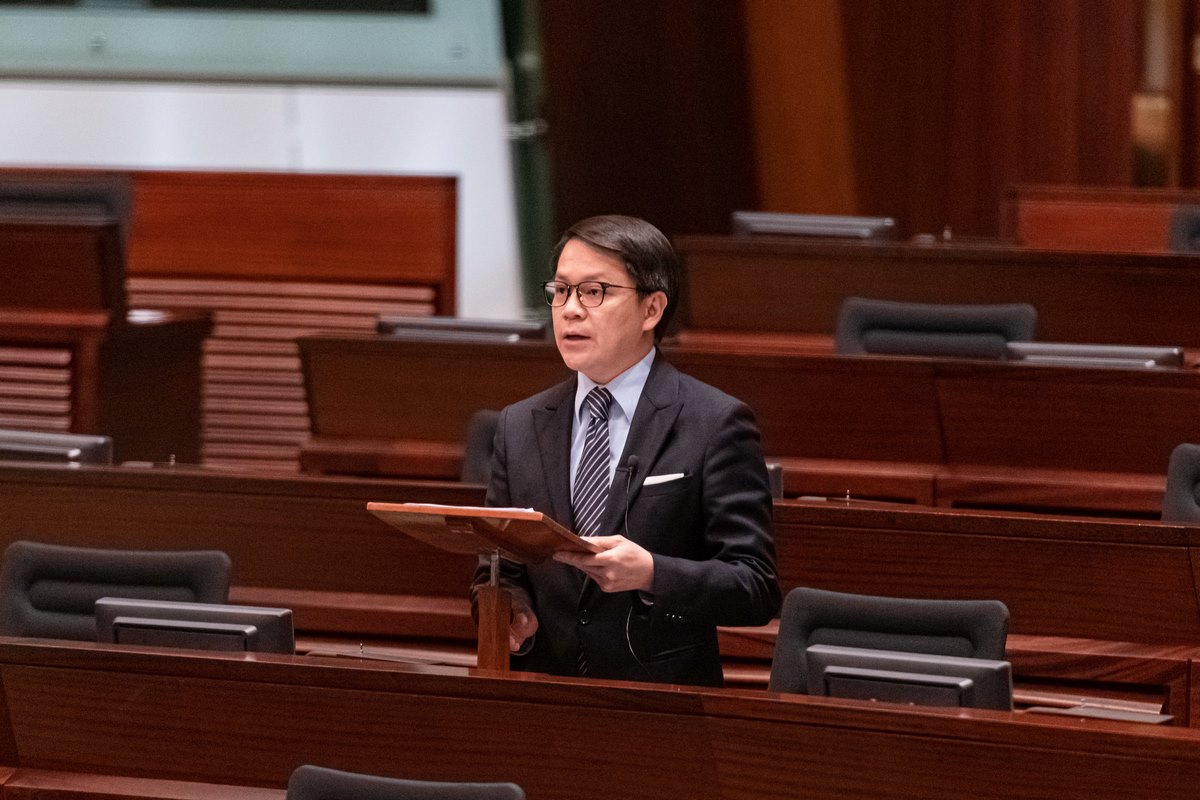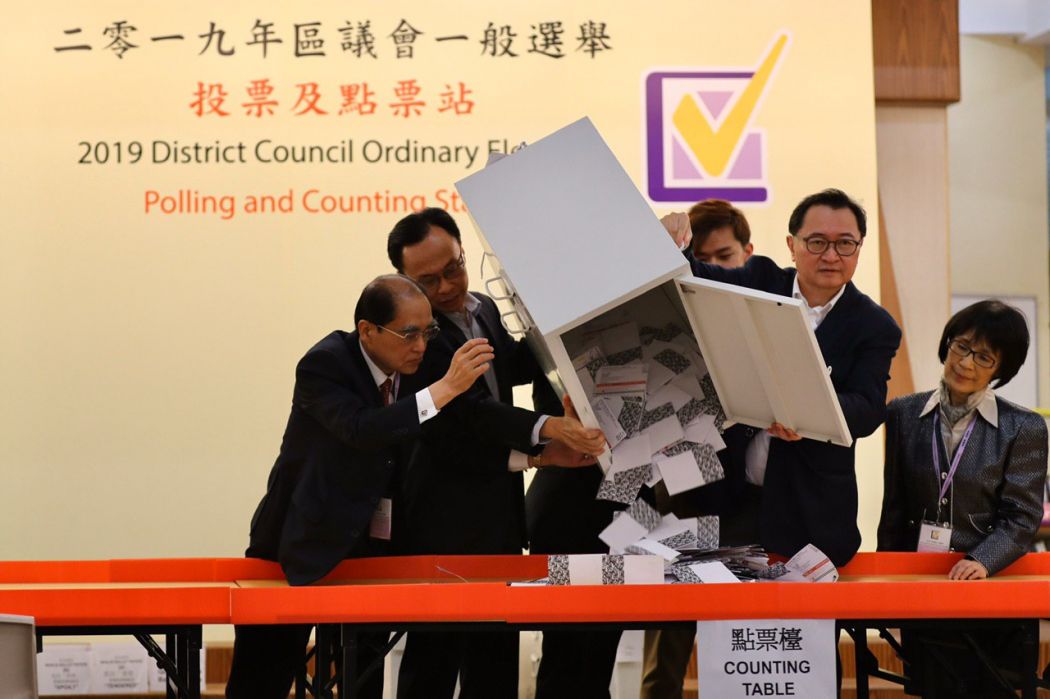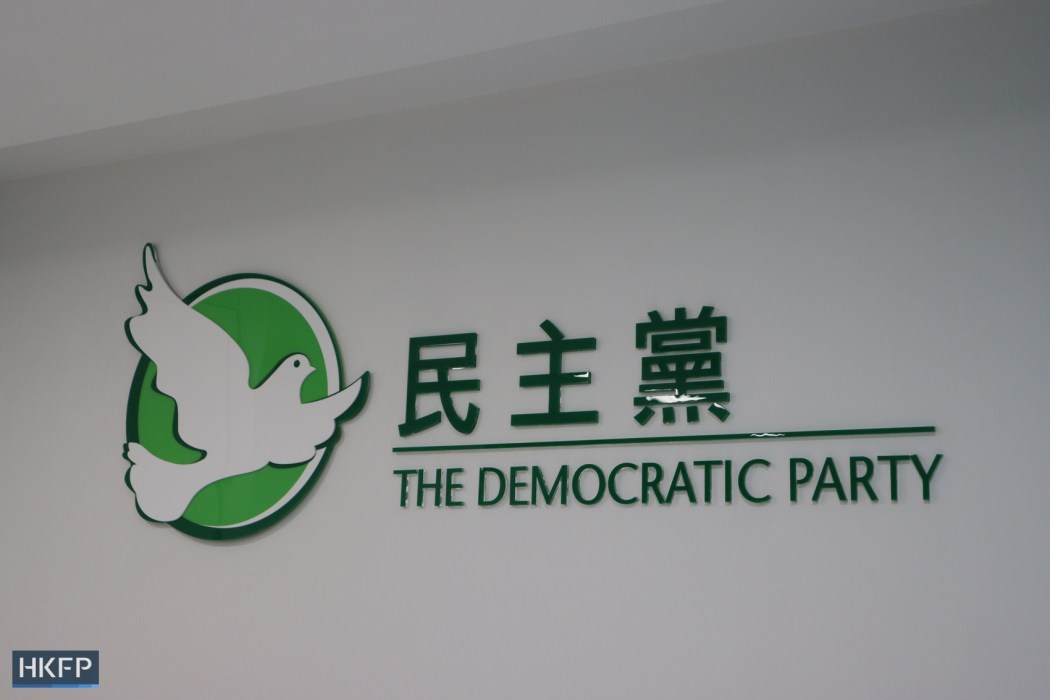The chairperson of Hong Kong’s largest pro-establishment party said the upcoming District Council election would be “more intense” than years past, adding that it planned to send members to contest in all 44 constituencies.

Gary Chan, who recently took over as chair of the Democratic Alliance for the Betterment and Progress of Hong Kong (DAB), spoke with reporters on Thursday in the lead up to the overhauled December District Council race on December 10. The government approved the changes to the electoral system in July, drastically reducing democratically elected seats and introducing a vetting committee to ensure only “patriots” may run.
“This is a competition among patriots. This is an election that involves competing on political platforms, ability and service… so I think this election will be more intense than in the past,” he said.
“In the past, the elections were polarised. If you didn’t vote pro-establishment, you voted pan-democrat. Now, everyone is a patriot,” he added.
Southern District Councillor Paul Zimmerman once described the city’s local-level advisory bodies as the “final bastion of democracy.” However, December’s race will see the number of publicly elected seats reduced from 452 to 88, with the rest will be chosen by the city’s leader, government-appointed committees and officials.
All candidates must pass national security vetting and be deemed “patriots” by the government in order to run. They must also receive at least three nominations from three committees – Area Committees, District Fight Crime Committees, District Fire Safety Committees – which consist of members appointed by the government.
Chan said the DAB would aim to send one candidate to contest each of the 44 constituencies, each of which will return two seats. Before the overhaul, the there were 452 constituencies.
The DAB’s 19 lawmakers will not run, he said, adding that he hoped they would focus on their legislative work.
Hong Kong’s District Councils advise the government on local matters, including public facilities and services, as well as the use of public funds, in their respective districts.

The current District Council term finishes at the end of December. When District Council elections were last held, in 2019, Hong Kong was engulfed in citywide pro-democracy protests, and the opposition camp won a landslide victory, taking 17 out of 18 districts.
But the city saw a wave of resignations from district councillors in 2021 after authorities mandated the taking of an oath swearing allegiance to the Hong Kong government. Others were ousted from office over oaths deemed “invalid.” Of the 479 seats in the current term, over 300 are vacant.
Authorities said change was necessary after district councillors had “intentionally divided the society,” objected to the national security law and supported Hong Kong independence, without citing evidence for their accusations.
Democratic Party endorsements
Chan’s comments came two weeks after the Democratic Party said it had endorsed eight candidates to run in the upcoming District Council race, making them the first opposition party to officially support members to run.
The names of the candidates would not yet be revealed, chairperson Lo Kin-hei said. But local media reported that the list included Lo and vice-chairperson Bonnie Ng, both of whom resigned as district councillors in 2021 after the oath was introduced.

But Lo also said the party was struggling to receive the nominations from the three government-appointed committees needed to run. In a Thursday op-ed published in Ming Pao, Lo said the party had emailed the Home Affairs Department – which oversees the three committees – for their members’ contact details.
He added that only a name list of committee members was available on the department’s website. Contact details should be made public, Lo said, so that those who intended to run – not just those part of an “inner circle” – could reach out and get nominations.
The Electoral Affairs Commission said in a statement on Thursday night it did not have the authority to disclose contact information due to privacy reasons, but that it would assist people to get in contact with those committee members.
Speaking with reporters on Thursday, Chan said that as long as people were determined to serve the district, receiving the nominations should not be difficult.
The District Council electoral overhaul followed similar changes to the Legislative Council race.
In March, 2021, Beijing passed legislation to ensure “patriots” govern Hong Kong. The move reduced democratic representation in the legislature, tightened control of elections and introduced a pro-Beijing vetting panel to select candidates. The Hong Kong government said the overhaul would ensure the city’s stability and prosperity. But the changes also prompted international condemnation, as it makes it near-impossible for pro-democracy candidates to stand.
Support HKFP | Policies & Ethics | Error/typo? | Contact Us | Newsletter | Transparency & Annual Report | Apps
Help safeguard press freedom & keep HKFP free for all readers by supporting our team

LATEST FROM HKFP
HKFP has an impartial stance, transparent funding, and balanced coverage guided by an Ethics Code and Corrections Policy.
Support press freedom & help us surpass 1,000 monthly Patrons: 100% independent, governed by an ethics code & not-for-profit.










